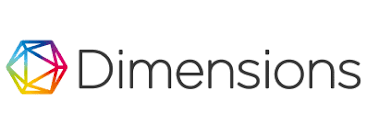Apakah Jenis Kelamin Memoderasi Pengaruh Harga Diri terhadap Perilaku Adiksi pada Instagram di Kalangan Remaja?
Abstract
Instagram is the most populer social media among adolescents today. Continously instagram usage can be potential to emerge addiction behavior. This study was aimed to test the effect of self-esteem to instagram addiction moderated by gender. Data were collected using the instagram addiction scale and self-esteem scale. The subjects were 27 adolescents, who previously amount 285, filtered through screening phase based on criteria individual with addiction according to DSM-V. Moderated regression analysis was used to test the hypothesis. Data analysis showed that self-esteem had a significant effect to instagram addiction (p<0.05), but not with gender. It said that both men and women have the same opportunities to engage in instagram addiction.
Full Text:
PDF (Bahasa Indonesia)References
American Psychologist Association. (2013). Diagnostic and Ststistical Manual of Mental Disorder Fifth Edition. London : APA.
Andreassen, C.S. (2015). Online social network site addiction: A comprehensive review. Curr Addict Rep, 2, 175-184. DOI : 10.1007/s40429-015-0056-9
Andreassen, C.S., Pallesen, S., dan Griffiths, M.D. (2016). The relationship between addictive use of social media, narcissism, and self-esteem: Findings from a large national survey. Addcitive Behaviors.
Andreassen, Griffiths, Gjertsen, Krossbakken, Kvam, dan Pallesen. (2013). The relationships between behavioral addictions and the five-favtor model of personality. Journal of Behavioral Addiction, 2(2), 90-99. DOI: 10.1556/JBA.2.2013.003
Asosiasi Pengguna Jasa Internet Indonesia, (2016). Infografis penetrasi dan perilaku pengguna internet Indonesia. Laporan Penelitian.
Aydın, B. dan Sarı, S.V. (2011). Internet addiction among adolescents: The role of self-esteem. Procedia Social and Behavioral Sciences, 15, 3500-3505. DOI: 10.1016/j.sbspro.2011.04.325
Blachnio, A. Przepiorka, A., dan Pantic, I. (2016). Association between facebook addiction, self-esteem and life satisfaction: A cross-sectional study. Computers in Human Behavior, 55, 701-705. DOI: http://dx.doi.org/10.1016/j.chb.2015.10.026
Bolton, dkk. (2013). Understanding generation y and their use of social media: A review and research agenda. Journal of Service Management, 24(3), 245-267. DOI: http://dx.doi.org/10.1108/09564231311326987
Chen, C., Zhang, K.Z.K., Gong, X., Zhao, S.J., Lee, M.K.O., dan Liang. (2017). Examining the effects of motives and gender differences on smartphone addiction. Computers in Human Behavior, 75, 891-902. DOI: http://dx.doi.org/10.1016/j.chb.2017.07.002
Costa, P.T. dan McCrae, R.R. (1995). Persons, places, and personality: Career assessment using the revised NEO Personality Inventory. Journal of Career Assessment, 3(2), 123-139. DOI: 10.1177/106907279500300202
Crawford,K. (2009) Following you: Disciplines of listening in social media, Continuum: Journal of Media & Cultural Studies, 23(4), 525-535. DOI: http://dx.doi.org/10.1080/10304310903003270
Eijnden, Regina J.J.M., Lemmens, J.S., dan Valkenburg, P.M. (2016). The social media disorder scale. Computers in Human Behavior, 61, 478-487.
Fioravanti, G., De`ttore, D., dan Casale, S. (2012). Adolescent internet addiction: Testing the assocition between self-esteem, the perception of internet attributes, and preference for online social interaction. Cyberpsychology, Behavior, and Social Networking, 15(6), 318-323. DOI: 10.1089/cyber.2011.0358
Gentile, Grabe, Dolan-Pascoe, Twenge, Wells, dan Maitino. (2009). Gender differences in domain-spesific self-esteem: A meta-analysis. Review of General Psychology, 13(1), 34-45. DOI: 10.1037/a0013689
Golbeck, Jennifer. (2015). Introduction to social media investigation: A hands-on approach. USA: El-Sevier.
Koc, M. dan Gulyagci, S. (2013). Facebook addiction among turkish college students: The role of psychological health, demographic, and usage characteristics. Cyberpsychology & Behavior, and Social Networking 16(4),279-284.
Konrath, S. (2012, in press) Self-esteem, culturally defined. In Cultural Sociology of Mental Illness: An A-to-Z Guide, Sage Reference
Kuss, Daria J dan Mark D. Griffiths. (2011). Online social networking and addiction - A review of the psychological literature. International Journal of Environment Research and Public Health, 8, 3528-3552.
Mei, S., Yau, Y.H.C., Chai, J., Guo, J. & Potenza, M.N. (2016). Problematic internet use, well-being, self-esteem and self-control: Data from a highschool survey in China. Addictive Behaviors, doi: 10.1016/j.addbeh.2016.05.009
Muller, M. (2012). Lurking as personal trait or situational disposition? Lurking and contributing in enterprise social media. Community and Claasification Online, Seattle, USA.
Mulyani, I., Rahardjo, W., Citra, A.F., Damariyanti, M., Saputra M., Ayuningsih A.M., dan Siahay, M. (2017). The Effect of Neuroticism and Loneliness to SNS Addiction on Social Media Users. Laporan Penelitian¬¬.
Niemz, K., Griffiths, M., dan Banyard, P. (2005). Prevalence of pathalogical internet use among university students and correlations with self-esteem, the general health questionnair (GHQ) and disinhibition. Cybepsychology & Behavior, 8(6), 562-570.
Pantic, Milanovic, Loboda, Blachnio, Przepiórka, Nesic, Mazic, Dugalic, dan Ristic.(2017).Association between physiological oscillations in self-esteem, narcissism and internet addiction: A cross-sectional study, Psychiatry Research. DOI: http://dx.doi.org/10.1016/j.psychres.2017.08.044
Rosenberg, M. (1965). Society and the adolescent self-image. Princeton, NJ: Princeton University Press
Sariyska dkk. (2014). Self-esteem, personality and internet addiction: A cross-cultural comparison study. Personality and Individual Differences, 61, 28-33. DOI: http://dx.doi.org/10.1016/j.paid.2014.01.001.
Yao, M.Z., He, P., Ko, D.M., dan Pang, K. (2014).The influence of personality, parental behaviors, and self-esteem on internet addiction: A study of Chinese college students. Cyberpsychology, Behavior, and Social Networking, 17(2), 105-110. DOI: 10.1089/cyber.2012.0710
DOI: http://dx.doi.org/10.24014/jp.v16i1.9221
Refbacks
- There are currently no refbacks.
REDAKSI : JURNAL PSIKOLOGI
Jl. H.R. Soebrantas Km. 15.5 No. 155 Gedung Fakultas Psikologi UIN Sultan Syarif Kasim Riau Kel. Tuahmadani Kec. Tampan Pekanbaru - Riau 28293.
E-mail : jurnal.psikologi@uin-suska.ac.id / Website : http://ejournal.uin-suska.ac.id/index.php/psikologi

Jurnal Psikologi oleh Fakultas Psikologi disebarluaskan di bawah Lisensi Creative Commons Atribusi 4.0 Internasional.
1.jpg)
.jpg)













